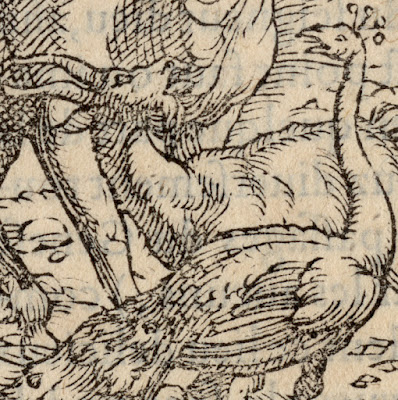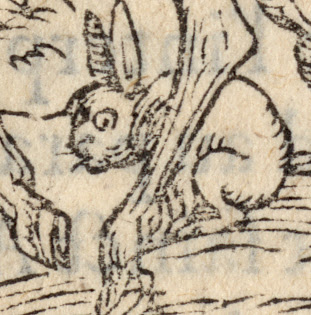(Unidentified
artist after) Jost Amman (aka Jost
Ammon) (1539–91)
“Adam and Eve,
The Fall of Man” (Gen. 3), a 16th century copy (circa 1560) after
Jost Amman’s design from “Biblia” (see Bartsch 1.2) and from “Opera Josephi”
(see Bartsch 12.2)
Woodcut on fine
laid paper with small margins and printed text verso
Size: (sheet)
11.7 x 16 cm; (image borderline) 11 x 15.4 cm
16h century copy
after Jost Amman: Bartsch (1985) Vol. 20 (Part 1) 1.2 (365), p. 248; Bartsch
(1985) Vol. 20 (Part 2) 12.2 (374), p. 743
Condition: very
good impression in near pristine condition. The sheet is attached with two mounting
hinges (verso) to a support sheet.
I am selling this
finely executed 16th century woodcut after Jost Amman’s design for a
total cost of AU$197 (currently US$143.79/EUR136.64/GBP117.02 at the time of
this listing) including postage and handling to anywhere in the world.
If you are
interested in purchasing this wonderful early illustration of Adam and Eve in
the Garden of Eden and their expulsion from the garden shown in the distance,
please contact me (oz_jim@printsandprinciples.com) and I will send you a PayPal
invoice to make the payment easy.
This print has been sold
Let me begin
this discussion by saying that trying to identify the printmaker responsible for
an early print such as this is not easy. When I originally purchased it from an
Italian dealer who specialises in old master prints, the cardboard mount protecting
it was simply marked: “1550 circa … Anonymous, German School, XVI century.” Consequently,
my choice to purchase it was not driven by a particular artist’s name and reputation, but
rather by simply liking the woodcut.
This afternoon
I committed myself to discovering the name of the artist who executed the print and set my
mind to the tedious task of leafing through a virtual wall of volumes constituting
“The Illustrated Bartsch” —a research repository of just about every print
created by the old masters in the hope of finding the image married to the artist's name. I knew that the print had to be German— even without the note on the print’s
mount—as the portrayed figures have that awkward angularity loved by the early
Germans. Consequently, I started searching through images made by the early German
monogrammists. Virgil Solis was my initial focus, as the imagery seemed to be a
bit like his handiwork even if the treatment had a lighter touch in terms of tonal rendering. I
must say at this point that Virgil Solis did a LOT of prints that I was compelled to study—so many in fact, that I came to the conclusion that he couldn’t have
had many friends. I then moved to the two volumes of Jost Amman and there I found
the print. What I hadn’t expected was that the print featured in both volumes
as it was used in two different publications.
At this stage
of my investigations I was happy—VERY happy—but then I started to compare my
print with the versions reproduced in Bartsch. This was an “Oh no!” moment. I had
discovered why my Italian dealer had not volunteered the artist’s name. The
print was not the work of Jost Amman even though the size of the plate was
exactly the same as Amman’s “Adam and Eve.” Amman has birds and clouds in his
sky and my print didn’t. This was a copy after Amman’s design. It is not by
Amman. In short, the Italian dealer was sadly correct in attributing the print
to an anonymous artist.
________________________
Update: Thanks
to @samuelahumphreys (on Instagram) and his marvellous advice that I should try the Google
Image Reversal Tool, I have now established that this woodcut after Jost
Amman was published and printed in 1575 by Nicolas Chesneau and Michel Sonnius
in “La Cosmographie Universelle de tout le monde.” More information is provided
at Vintage Maps who also have a copy of this print for sale (see: http://www.vintage-maps.com/en/graphics/old-masters/de-belleforest-adam-and-eve-1575::11621).








Hello. Francois de BELLEFOREST 1575 print is a likely copy of Jost AMMAN 1564 Bible see https://www.wkgo.de/projekte-events/projekt/72. Best regards. Christophe STENER author of The Iconography of the Original Sin.
ReplyDeleteSincere thanks Christophe! Marvellous!
Delete